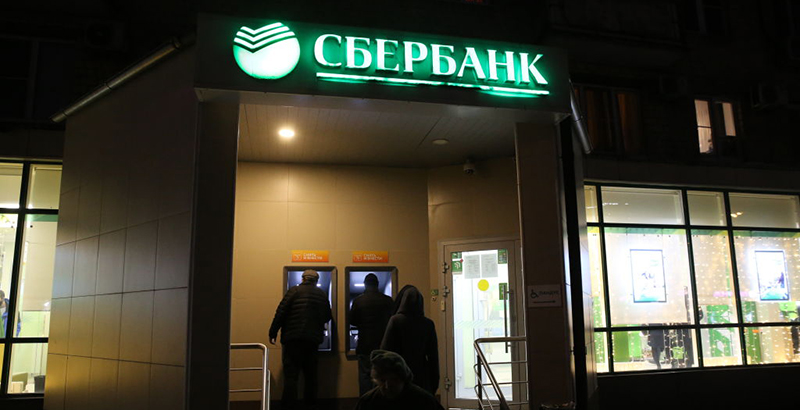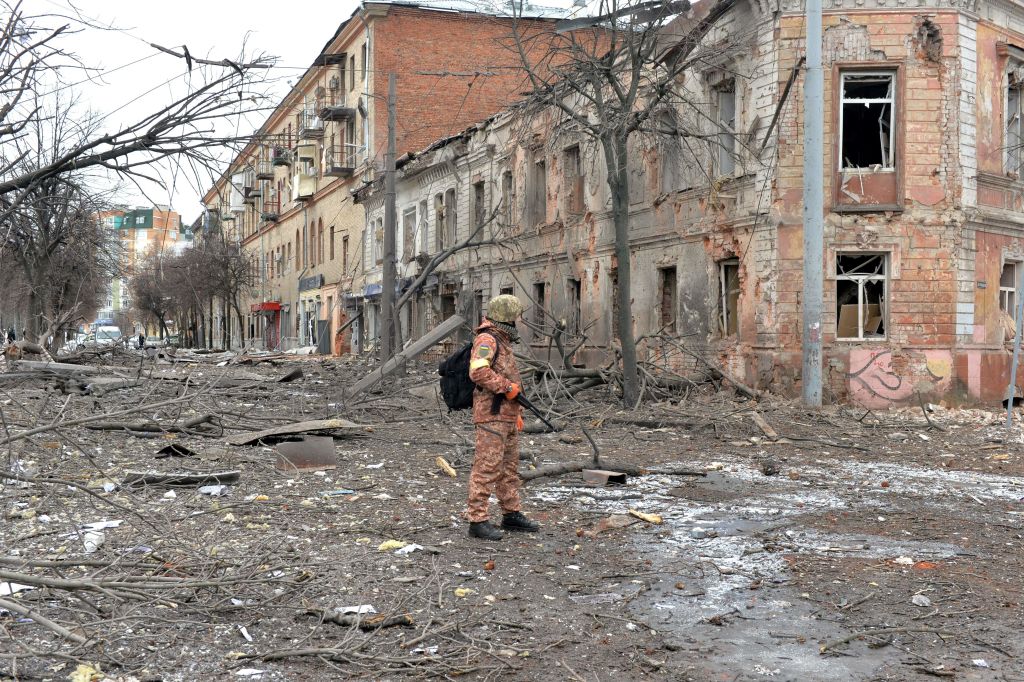Officials Are Calling for Teacher Pension Funds to Divest from Russia to Protest War in Ukraine. It Might Not Be So Easy

Get stories like this delivered straight to your inbox. Sign up for The 74 Newsletter
Less than two weeks into Russia’s war in Ukraine, the conflict’s geopolitical ripples are heading in some unexpected directions. Some are even being felt by active and retired teachers, through their retirement funds.
Many public employee pensions, including those covering teachers, are significantly exposed to a Russian financial market that has taken a drubbing in response to Western sanctions this month. Within days of the Russian invasion, Colorado’s state pension fund removed over $7 million held in Sberbank, a substantially state-owned Russian bank. Legislators in Massachusetts, Illinois, and New Jersey have proposed bills that would push state treasurers to liquidate Russian holdings, while governors and other officials in Virginia, Ohio, Maryland, Washington State, California, Pennsylvania, and Connecticut have advocated either for full-scale divestment or reviews of their portfolios. Pension funds in Canada and Sweden are following suit.
In a letter to his state’s three largest retirement systems, California Gov. Gavin Newsom asserted that their fiduciary duties to beneficiaries “demand that you act to address Russia’s aggressions and immediately restrict Russian access to California’s capital and investments.”
The sudden push has been framed as a blow against military aggression. But disentangling public funds from foreign entities in countries like Russia may also pose further challenges to their short-run health of already stressed retirement systems. Given the ruble’s precipitous decline in value, states must decide whether to sell off their control over assets at stupefying losses; with the restrictions placed on stock trading of Russian entities, some investors are simply unable to act at the moment. And that’s without considering the logistical challenges of identifying and severing ties to foreign investments in the first place.
Chad Aldeman, the policy director at Georgetown University’s Edunomics Lab, said that teachers might be surprised to learn that their retirement contributions were mingled with assets overseas.
“I would say that, through their pension funds, teachers are invested in far more exotic assets and investments than the typical 401(k) investor,” Aldeman said. “There are all kinds of different financial strategies they’re pursuing, and they’re more aggressive about finding different types of investments, like lumber or coffee or international avenues like Russia.”
The dilemma showcases some important recent development in American finance. Increasingly, major American investors — including pensions, but also 401(k) plans and endowments — have tended to favor positions in “passive” funds that track stock indexes rather than paying managers to pick winners for them. The switch comes in response to the high fees and disappointing performance resulting from “active” investments in the past, such as the Alabama retirement system’s misbegotten outlay of $221 million in a now-defunct chain of movie theaters. By contrast, Nevada’s public employee pension went fully passive a few years ago, shrinking its investment office to just one man whose professed strategy was to do “as little as possible.”

But Aldeman observed that many public pensions still have considerable sums tied into such investments, including those in foreign markets.
“They’re stretching to hit an investment target, and to do that, they’re trying to find the absolute best investments out there,” he said.
Moving away from that posture, even in response to global condemnation of Russia’s actions, may come at a price. As a case in point, the Kentucky Teachers’ Retirement Fund sold its own shares in Sberbank in late February for $12.4 million. That was over $3 million less than it cost to buy them in 2017.
That figure recedes a bit in the context of a $26 billion portfolio. But the system is already dramatically underfunded, and such losses may contribute to the perception of mismanagement. Ted Siedle is a pensions expert and writer who has authored investigations into retirement systems in several states, including a widely circulated report in Rhode Island commissioned by the state teachers’ union. In an interview, he cited the example of Ohio’s pension fund, which lost over half a billion dollars over the last decade in a deal with a Texas private equity firm.
“That’s not a whole lot for a $100 billion pension fund to lose, but the people whose money it is didn’t look at it that way,” Siedle said. “The teachers were pissed! That’s money that could have gone to their cost-of-living adjustments. And for some pensions, the Russian holdings could be a significant amount.”
A key problem, Siedle argued, is that the boards of pension plans are typically filled with laymen with insignificant financial expertise, like municipal leaders and retired public employees. They are also not governed by the Employee Retirement Income Security Act of 1974, the main federal body of regulations over private pensions. As a consequence, the systems are viewed by Wall Street intermediaries like hedge funds as “the dumbest investors out there,” he said.
Even amid a wave of divestment from Russian industry, it may be difficult for teachers’ pension funds to distance themselves. For one thing, Aldeman noted, they could face “lock up fees” from their managers for canceling their investments early; those might come on top of financial losses from selling assets whose market value is plummeting.
Beyond that, Siedle has argued, lower transparency requirements outside ERISA will mean that pension funds may find it difficult to even identify where their money is invested. In other words, not only are teachers unaware of the scope of their exposure to the Russian economy, but so are the pension systems themselves.
“There’s no accountability. Who’s even going to tell them? The money manager would have to honestly tell the pension fund, and then the pension fund would have to honestly tell the public. The chances of that happening are slim to none.”
Get stories like these delivered straight to your inbox. Sign up for The 74 Newsletter

;)
